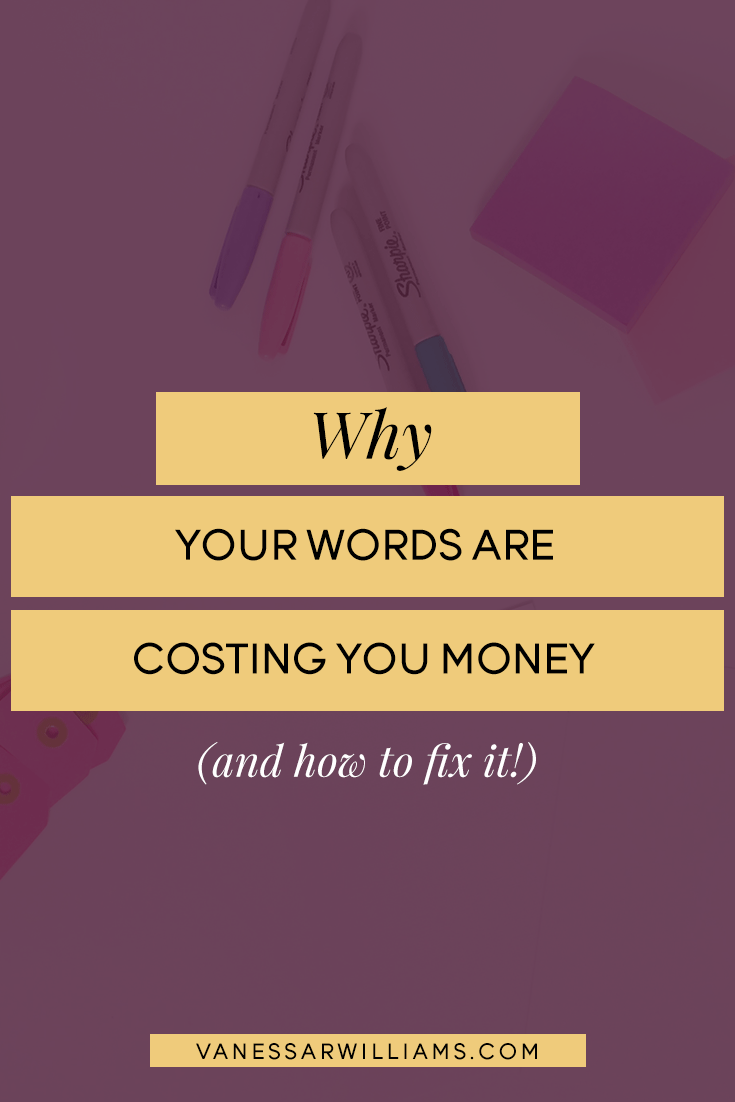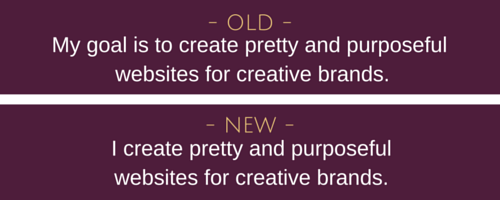
A couple weeks ago, I went to an event to support my fiancé and his startup endeavor. At the event, startups were randomly chosen to pitch their products/services to a panel of investors. Then, the investors responded with feedback to help the startups improve their pitches. Think of it as a low-budget episode of Shark Tank– now imagine my excitement as I sat in the audience. The one issue that many of the startups had, however, was showing confidence in their businesses. I noticed it and the investors commented on it. Common phrases were:
We hope to…
We think that…
We are planning to…
I don’t know about you, but none of these phrases sound promising to me. When a lot of money is on the line, you better have more to provide than just hopes and dreams.
I’ve noticed this around the web, too. Take a look at real excerpts from About pages I’ve checked out in the past month:
I hope these samples give you a sense of my work.
My goal is to provide entrepreneurs with proven strategies.
With my clients, I do my best to help them tell their story.
How you explain who you are and what you do is super important because it shows exactly how you feel about what you have to offer. What do the previous excerpts say about each person? The language is weak, and it’s evident each person isn’t confident about what they have to offer. Would you pay for any of these services? Probably not. People don’t pay for possibilities. They pay for what you will deliver.
[Tweet “Clients don’t pay for possibilities. They pay for what you WILL deliver.”]
The words you use to describe what you do have nothing to do with how capable you are, but they have everything to do with your confidence. Confidence is something many of us struggle with, but when you allow your words to reflect how you feel deep down inside, you instantly demolish any opportunity you have of gaining someone’s trust and support. Don’t self-sabotage your opportunities before you even get a chance to prove your value.
[Tweet “Don’t self-sabotage opportunities before you get a chance to prove your value.”]
When individuals describe themselves as freelancers (or aspiring anything), I hear the sound of nails scratching a chalkboard. The thing is, unfortunately, most people don’t take titles such as “freelancer” seriously. They think a freelancer is someone who does cheap work or someone who makes a little extra cash on the side. However, you and I know ain’t nothing free or cheap about freelance work.
People call themselves freelancers and aspiring [fill-in-the-blank] in hopes that when they “make it,” they can ditch the title. But when do we ever really feel like we’ve made it? You have to give yourself permission to be who you already are… today. Not next month. Not a couple years from now. Today. You’re not a freelance writer. You’re a writer. You’re not an aspiring graphic designer. You’re a graphic designer. Period. And when you start believing it and conducting yourself as one, people will treat you and pay you accordingly.
[Tweet “You’re not a freelance writer. This is why.”]
Funwork: This weekend, take the time to review the copy on your website and all of the bios for your social media profiles. Remove all occurrences of:
- Freelancer
- Aspiring
- My goal is…
- I hope to…
- I hope you like…
Anything that even hints you aren’t confident in what you do, delete it, pronto. Rewrite your copy so it’s clear and direct. Tell people what you do and whom you serve– without the unnecessary fluff.
Here’s an example:

The great thing about how you write your copy is it also affects how you speak about yourself in conversations, presentations, etc. So the next time you get that big opportunity to pitch yourself, you’ll feel equipped to confidently explain who you are and what you do, without hesitation.
Remember, you don’t have to be the most eloquent writer or speaker, but you must present yourself with confidence.
Your turn:
Has anyone ever questioned your prices or work because you called yourself a freelancer? Tell me about it in a comment below.
Image Credit: rekitanicole.com

This was a great article…while I’ve been careful to avoid other phrases, I’ve used the words “My goal is” far too often without realizing it definitely is not a strong position. thanks for the clear callouts!
No problem, Kate. When you make statements like “My goal…” “My hope…” it gives off the impression that it may or may not happen– even though you’re in complete control. Glad this was helpful for you!
Great points!! I think we condition ourselves to be humble and it comes off as weak or uninspiring. Women have a bad habit of doing this! We downplay what we are capable of so that we don’t appear cocky or too aggressive. We’ve got to not be afraid of what we have to offer and stand boldly in it.
Good point about women, Eryn. If we seem to sure of ourselves, we’re deemed as “bossy.” I’d rather be bossy than miss out on opportunities because I’m playing it safe.
Great message. Your product sounds so much more valuable when you own it, opposed to presenting as something that you’re trying to do.
Exactly, Markita. People won’t buy from you if they can tell you don’t even believe in yourself.
Wow, this is such a simple yet powerful observation. In not wanting people to think “I think I’m all that”, I use those many of the modifiers you mentioned.. but I’m shooting myself in the leg! People just want to hear what you do in a clear and direct voice. I have much re-writing to do, thanks for this.
You’re welcome, Robyn. You’re right, we don’t want to come off like we’re arrogant, but then we end up downplaying what we have to offer. Let me know how the re-writing goes.